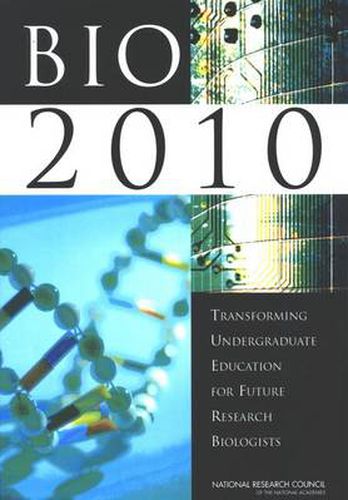Readings Newsletter
Become a Readings Member to make your shopping experience even easier.
Sign in or sign up for free!
You’re not far away from qualifying for FREE standard shipping within Australia
You’ve qualified for FREE standard shipping within Australia
The cart is loading…






Biological sciences have been revolutionized, not only in the way research is conducted - with the introduction of techniques such as recombinant DNA and digital technology - but also in how research findings are communicated among professionals and to the public. Yet, the undergraduate programs that train biology researchers remain much the same as they were before these fundamental changes came on the scene. This new volume provides a blueprint for bringing undergraduate biology education up to the speed of today’s research fast track. It includes recommendations for teaching the next generation of life science investigators, through: building a strong interdisciplinary curriculum that includes physical science, information technology, and mathematics; eliminating the administrative and financial barriers to cross-departmental collaboration; evaluating the impact of medical college admissions testing on undergraduate biology education; creating early opportunities for independent research; and, designing meaningful laboratory experiences into the curriculum. The committee presents a dozen brief case studies of exemplary programs at leading institutions and lists many resources for biology educators. This volume will be important to biology faculty, administrators, practitioners, professional societies, research and education funders, and the biotechnology industry.
$9.00 standard shipping within Australia
FREE standard shipping within Australia for orders over $100.00
Express & International shipping calculated at checkout
Biological sciences have been revolutionized, not only in the way research is conducted - with the introduction of techniques such as recombinant DNA and digital technology - but also in how research findings are communicated among professionals and to the public. Yet, the undergraduate programs that train biology researchers remain much the same as they were before these fundamental changes came on the scene. This new volume provides a blueprint for bringing undergraduate biology education up to the speed of today’s research fast track. It includes recommendations for teaching the next generation of life science investigators, through: building a strong interdisciplinary curriculum that includes physical science, information technology, and mathematics; eliminating the administrative and financial barriers to cross-departmental collaboration; evaluating the impact of medical college admissions testing on undergraduate biology education; creating early opportunities for independent research; and, designing meaningful laboratory experiences into the curriculum. The committee presents a dozen brief case studies of exemplary programs at leading institutions and lists many resources for biology educators. This volume will be important to biology faculty, administrators, practitioners, professional societies, research and education funders, and the biotechnology industry.